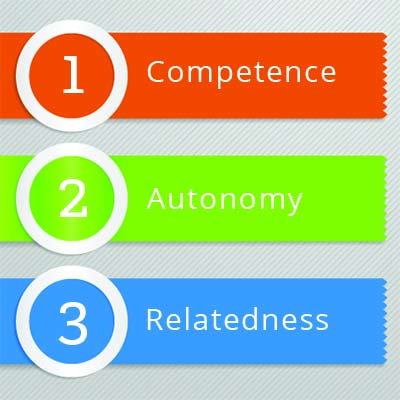Two-Thirds of Your RDR Team Isn’t Giving It Their Best (Why and What to Do About It)
- The three psychological needs affecting the motivation of a read development rep (RDR) are competence, autonomy and relatedness
- Here are some do’s and don’ts for maximizing your RDRs’ experience of each psychological need
- Ask RDRs to create their own skill development plan with your guidance, but don’t be afraid to coach
According to the Gallup Organization, about two-thirds of all employees are not engaged in their work and are not giving it their best effort. Nearly one in five employees are “actively disengaged” from their work (i.e., doing as little as possible to remain employed). Gallup estimates that in the U.S. alone, this lost productivity costs more than $300 billion annually.
 If you have a lead development rep (RDR) team, chances are good that your RDRs are contributing more than their fair share to that staggering amount of lost productivity.
If you have a lead development rep (RDR) team, chances are good that your RDRs are contributing more than their fair share to that staggering amount of lost productivity.
What Leads to Disengagement?
While there are myriad factors at work, more than four decades of research have shown that people everywhere and of every age need to have three psychological needs met in order to be motivated to give their best. Those needs are:
Competence. We all need to feel like we can be good at what we are doing. It’s why we play sports on weekends, practice music, do arts and crafts, play video games and engage in a wide variety of other challenging voluntary activities.
Autonomy. Sinatra said it best. We all like to have a say in how we conduct our work and our lives. Some of us are OK with having a trainer barking at us in the gym, but for most of us, that is about where being told what to do needs to end.
Relatedness. When we feel part of a “we,” we are happier. In the context of work, what matters is feeling as though we share the goals, aspirations and values of the company we work for and the people we work with. We need not feel a sense of relatedness to the whole company – feeling that way about our workgroup or team makes a difference.
It Comes Down to Motivation
As you may already have guessed, we differ from one another in the degree to which each of these three needs matters. For some, the need to feel good at their tasks is paramount, while for others, work would be unbearable if they didn’t feel like they were part of a team. Even so, while each person’s particular mix of competence, autonomy and relatedness needs is unique, each of us needs some of all three.
Taken together, these three factors influence the kind and amount of motivation we experience. Motivation comes in two flavors: intrinsic (self-motivation) and extrinsic (motivation that is imposed on us). Fear of losing a job is an extrinsic motivator, and so is that big bonus we hope to get. On the other hand, we are self-motivated when we can truly say we choose to do what we are doing. The more a job meets our needs for competence, autonomy and relatedness, the more giving our best effort is simply what we want to do.
It is possible that no one has ever aspired to teleprospecting as their dream job. And yet we can still engineer the RDR function to provide healthy measures of all three psychological needs. In my next post, I will provide a list of the do’s and don’ts to increase the odds that your RDRs will experience competence, autonomy and relatedness – and the self-motivation that results from them.